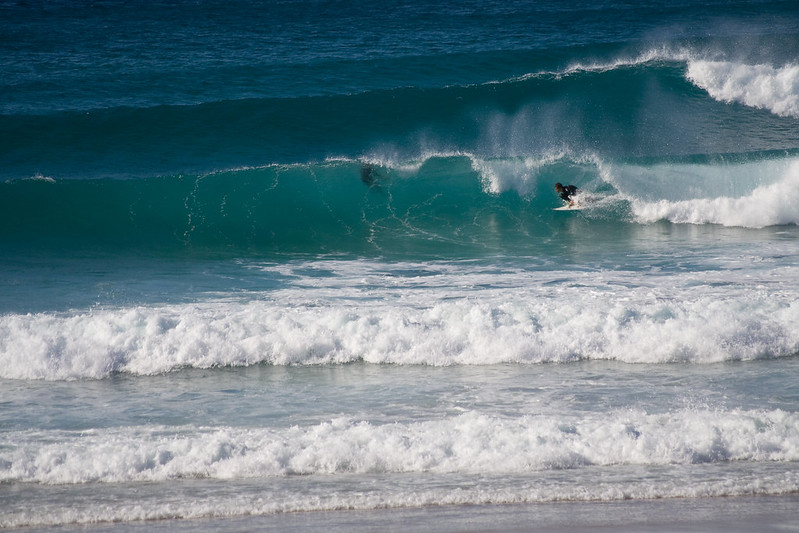Galicia doesn’t hand you anything. You take what it gives.
I learned that fast.
After the near-perfection of Mundaka, I wanted something wilder. Something that didn’t feel so… predictable.
And Galicia? Unpredictable is its default setting.
Rolling Into Razo
A couple of surfers in Mundaka told me about it. Not crowded. Not easy. The kind of place where you can sit in the lot for an hour, just watching, deciding if it’s worth the paddle out.
When I pulled up, the place looked empty. The wind was tearing across the sand, the waves were sloppy, confused.
Not exactly an inviting lineup.
I was standing there, debating whether I’d just driven all this way for nothing, when a local—**grizzled, looked like he’d been surfing since before leashes were a thing—**wandered over.
“Afternoon’s better,” he said, nodding toward the ocean. “Wind will drop.”
He didn’t say anything else. Just walked off like he’d given me a secret worth holding onto.
Turns Out, He Was Right
By late afternoon, everything changed. The wind settled. The waves cleaned up. Suddenly, there was magic.
The lineup? Maybe a dozen guys. No crowd, no attitude. Just people catching waves, laughing between sets, existing in that unspoken flow that happens when everyone in the water just gets it.
First wave I took was a left. Nothing crazy. Just clean, steady, easy. A reminder that not every wave needs to be a battle.
Stormy Days & Quiet Lessons
Not every day in Galicia went like that.
Some mornings, I woke up in the van to rain hammering the roof, the wind howling so loud it drowned out my alarm.
No surfing. No clear skies. Just waiting.
That’s how I found Combarro.
I wasn’t planning on stopping there. Didn’t even know it existed. But the rain had made a surf session impossible, and I needed something to do.
It was like stepping into a painting. Stone houses packed tight along the water, their balconies overflowing with flowers. Granaries perched on stilts, weathered by salt and time.
Down by the harbor, a group of old fishermen was mending their nets. No rush. No wasted movement. Just hands that had done this a thousand times before.
One of them—maybe in his seventies, face like worn leather—was teaching a kid, probably his grandson, how to tie a proper knot.
The boy messed up. Tried again. Messed up.
The old man just laughed, untangled it, showed him again. No frustration. No pressure.
Try. Mess up. Try again.
I stood there for a while, watching. It felt like something I was supposed to see.

